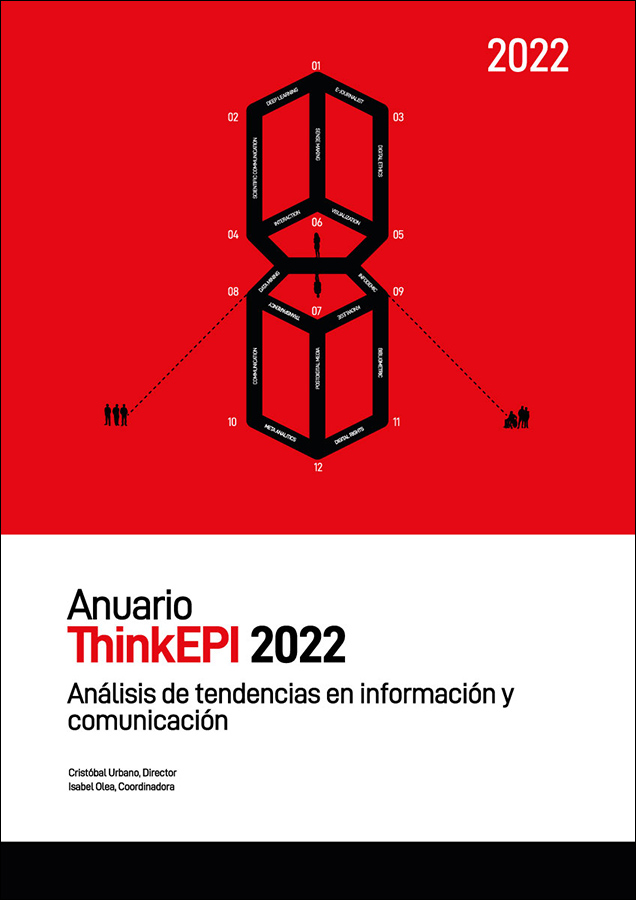On the brink of the reform of the Spanish academic evaluation system: Recalling the past to avoid mistakes in the present
DOI:
https://doi.org/10.3145/thinkepi.2022.e16a37Keywords:
Research evaluation, Performance assessment of researchers, Research policy, Bibliometric indicators, University faculty, Higher education, Universities, Aneca, SpainAbstract
This essay provides some reflections on the origin of the current scientific evaluation system in Spain, focusing on an analysis of the system of selection and accreditation of university faculty. This system was put in place to prevent academic inbreeding. The thesis that this is mainly a centralized system is rebutted: although accreditation is indeed centralized, faculty selection is carried out by universities themselves. It is argued that we cannot fully trust universities to establish policies that are immune to localism and nepotism if they are not held fully responsible for their actions. The functional imbalance that exists in Spanish university teaching staff is highlighted. Among the activities currently carried out by university professors (teaching, research, knowledge transfer, and management), research is the most highly valued in evaluation programs. More specifically, publications are key to launch and advance careers in the academic environment. The success of the program of sexenios (six-year assessment periods), which serves not only as an incentive for productivity but also as an instrument to establish scientific reputation and academic hierarchy, has contributed to this situation. Other features of the current evaluation system in Spain are the predominance of individual-level evaluation and the use of bibliometric indicators as the final quality values. The Spanish academic evaluation system chose to give preference to individual-level evaluation. Once again, the origin of this approach can be found in the introduction of teacher and researcher productivity salary supplements in 1989. Spanish academics grew up in a culture of individual-level evaluation where they had to obtain their jobs through competitive examinations and were rewarded with bonuses on the basis of personal achievements. Quantitative criteria appeared as the necessary antidotes to curb nepotism. In a country lacking infrastructure and a culture of evaluation, quantitative indicators ensured objectivity and efficiency in the processes of selection and evaluation of publications, and, indirectly, a minimum amount of rigor and relevance of the research itself. The thoughts exposed here are accompanied by suggestions that might help guide the necessary reform of the scientific evaluation system.
Downloads
References
Ahedo-Gurrutxaga, Igor; Martínez-Palacios, Jone; Ormazabal-Gaston, Andere (2022). "Letter: Central nodes in the reform of the Spanish Universities Law". Profesional de la información, v. 31, n. 3, e310309. https://doi.org/10.3145/epi.2022.may.09
Aguillo, Isidro F. (2021). "Letter: Respuesta a Delgado-López-Cózar et al.: Factor de impacto: muchas declaraciones y pocos resultados". Profesional de la información, v. 30, n. 3. https://doi.org/10.3145/epi.2021.may.15
Arenilla-Sáez, Manuel (2021). "La necesaria reforma de la Universidad española". Revista de derecho político, n. 110, p. 13-46. https://doi.org/10.5944/rdp.110.2021.30314
Codina, Lluís (2021). "Carta. Por un cambio en la evaluación de la investigación científica: "˜no tirar al niño junto con el agua sucia´". Profesional de la información, v. 30, n. 4, e300418. https://doi.org/10.3145/epi.2021.jul.18
Delgado-López-Cózar, Emilio (2016). "La universidad española en el diván". En: Gutiérrez-Fuentes, José-Antonio; Sacristán-del-Castillo, José-Antonio (eds.). Reflexiones sobre la ciencia en España. Cómo salir del atolladero. Madrid: Unión Editorial, Fundación Lilly, pp. 99-166. ISBN: 9788472096806 http://hdl.handle.net/10481/41048
Delgado-López-Cózar, Emilio (2019). Sexenios 2019: la transferencia se independiza, los rankings de revistas arriban al Derecho y siguen penetrando en las Humanidades y Ciencias Sociales. Granada, 26 diciembre. http://hdl.handle.net/10481/58574
Delgado-López-Cózar, Emilio; Martín-Martín, Alberto (2019). "El Factor de Impacto de las revistas científicas sigue siendo ese número que devora la ciencia española: ¿hasta cuándo?". Anuario ThinkEPI, v. 13. https://doi.org/10.3145/thinkepi.2019.e13e09
Delgado-López-Cózar, Emilio; Rí fols, Ismael; Abadal, Ernest (2021). "Letter: A call for a radical change in research evaluation in Spain". Profesional de la información, v. 30, n. 3. https://doi.org/10.3145/epi.2021.may.09
Delgado-López-Cózar, Emilio; Rí fols, Ismael; Abadal, Ernest (2022). "Medidas insuficientes para un cambio en la evaluación de la investigación en España: glosando las nuevas directrices de la Aneca". Recerca. Revista de pensament i aní lisi. v. 27, n. 2. https://doi.org/10.6035/recerca.6308
España (2001). "Ley orgánica 6/2001, de 21 de diciembre, de Universidades". BOE, n. 307, 24 diciembre. https://www.boe.es/boe/dias/2001/12/24/pdfs/A49400-49425.pdf
European Commission (2021). Towards a reform of the research assessment system: scoping report. European Commission, Directorate-General for Research and Innovation. https://data.europa.eu/doi/10.2777/707440
European Commission (2022). The agreement on reforming research assessment. European Commission, Directorate-General for Research and Innovation. https://coara.eu/app/uploads/2022/09/2022_07_19_rra_agreement_final.pdf
Feenstra, Ramón A.; Delgado-López-Cózar, Emilio (2021). "The footprint of a metrics-based research evaluation system on Spanish philosophical scholarship: an analysis of researchers perceptions". Arxiv, March 22. https://doi.org/10.48550/arXiv.2103.11987
Hammarfelt, Bjí¶rn; De-Rijcke, Sarah; Rushforth, Alexander D. (2016). "Quantified academic selves: the gamification of research through social networking services". Information research. v. 21, n. 2. http://InformationR.net/ir/21-2/SM1.html
Orduña-Malea, Enrique; Martín-Martín, Alberto; Delgado-López-Cózar, Emilio (2016). "Métricas en perfiles académicos: ¿un nuevo juego adictivo para los investigadores?". Revista española de salud pública, v. 90, e1-e5. https://www.sanidad.gob.es/biblioPublic/publicaciones/recursos_propios/resp/revista_cdrom/VOL90/C_ESPECIALES/RS90C_EDLC.pdf
Rí fols, Ismael; Molas-Gallart, Jordi (2022). "How to reform research evaluation in Spain. Institutional accreditation as a response to the European Agreement on research assessment. Letter". Profesional de la información, v. 31, n. 6. https://doi.org/10.3145/epi.2022.nov.01
Rodríguez-Navarro, Alonso (2022). Cómo medir el éxito científico. Los errores de España. Madrid: Aula Magna Proyecto clave McGraw Hill.
Sosa-Wagner, Francisco (2016). "La universidad española: entre Europa y una autonomía tramposa". Revista de administración pública, n. 200, p. 121-139. https://doi.org/10.18042/cepc/rap.200.07
Downloads
Published
How to Cite
Dimensions


